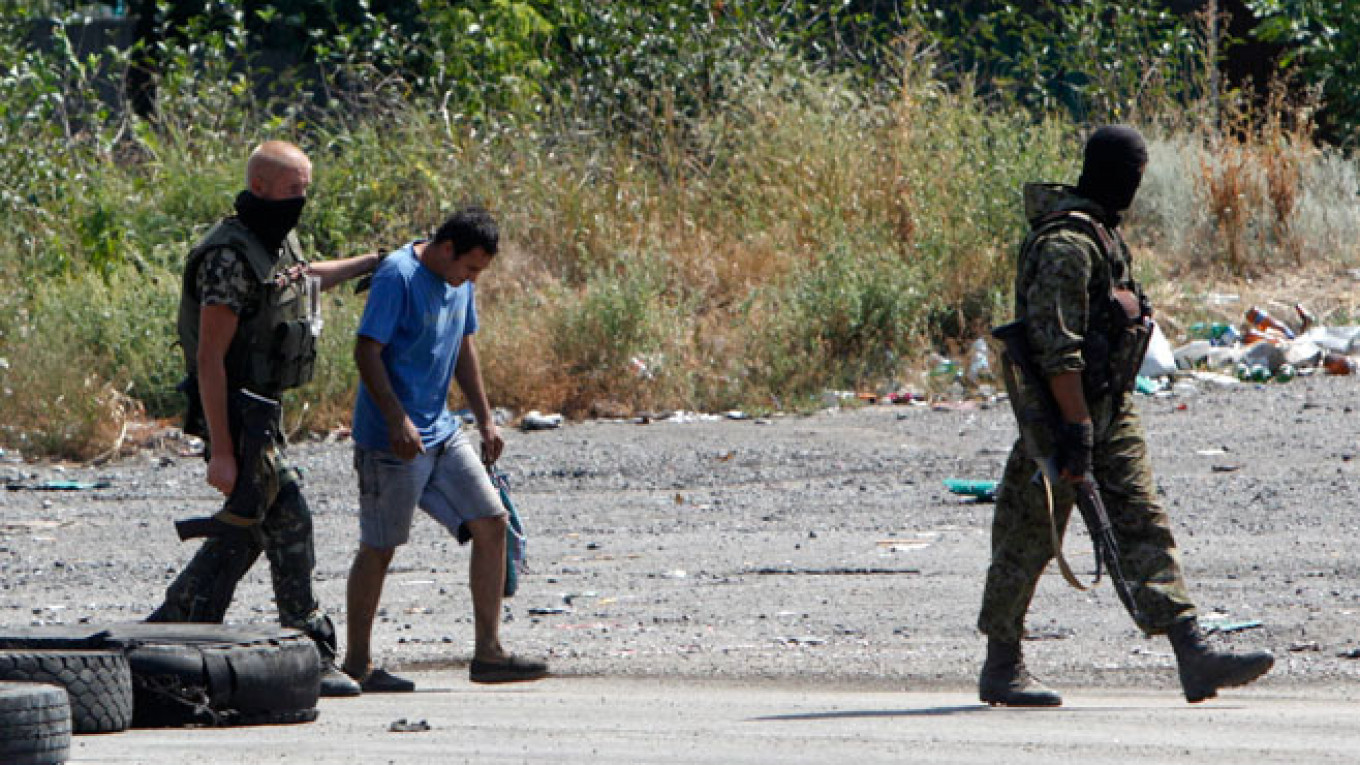It's a cliche to point out that objectivity and common sense are among the first casualties of armed conflict — but it's important to note that compassion often follows suit as well.
Today, the lack of compassion exemplified by residents of both Moscow and Kiev over the conflict in eastern Ukraine and the future of Ukraine as a whole ought to give us serious pause.
Far beyond abstract politics, the issue of very real, very serious hatred between two "brotherly nations" should concern everyone today, particularly those who don't want to see further instability on European soil.
In Moscow, I've grown tired of explaining that just because I'm critical of current Russian policy on Ukraine doesn't mean I'm "into Nazism." I've similarly grown tired of pointing out that backing separatists in Ukraine — whether unofficially or officially — may backfire on Russia in the worst possible way, as regional destabilization triggers greater destabilization over time.
But in a similar vein, pointing out the horror of civilian casualties in eastern Ukraine to Kiev residents often results in derision and downright hostility. "Maybe these people should have thought about the consequences before siding with Russian-backed terrorists," is a refrain one hears too often in Kiev these days.
To be certain, it makes sense for Kievans to be angry. While the West and Russia continue their stand off over Ukraine, the country itself faces an increasingly uncertain future.
The state of the economy is dire. Ukraine's already unstable social and political environment may worsen when the army's battle with the separatists is over and "the boys come home from war." It certainly doesn't help that the far-right volunteer battalions fighting in eastern Ukraine may want to play a part in postwar politics.
Meanwhile, a war still rages in eastern Ukraine.Among Maidan supporters in Kiev, plenty have friends who are now in the armed forces deployed in eastern Ukraine. Some talk about friends they have lost in battle. It makes sense to be angry when some 19-year-old kid you knew will never come home again.
It equally makes sense to be angry that, in addition to violence in Kiev last winter, locals had to deal with everything from the humiliating loss of Crimea to increasingly desperate-seeming brawls in the parliament.
To be fair, the parliament did manage to pass an important lustration bill in its first reading last week, although one has to wonder whether the eventual law will be properly enforced.
Yet despite the pain of Kiev's residents, civilians in eastern Ukraine have emerged as the most vulnerable parties in the entire horrid mess that is the Ukraine crisis so far.
It is sad and telling that the new Ukrainian government was said to have put together an aid convoy for the Donbass region only after the Russians had done the same. It makes Kiev's move seem like a PR stunt and brings home the fact that civilians in eastern Ukraine have apparently been largely off-the-radar as far as the authorities are concerned.
The bickering over the convoy drives home the point, though, that what we're seeing in Ukraine right now is not just a local conflict involving some international players. It is also a vicious cycle being simultaneously experienced by two societies — both Russian and Ukrainian — that are growing inured to the idea of destruction and death on their doorstep.
And the less sympathy and support that eastern residents get from Kiev, the less they are going to care about the whole notion of a sovereign Ukraine.
Natalia Antonova is an American playwright and journalist.
A Message from The Moscow Times:
Dear readers,
We are facing unprecedented challenges. Russia's Prosecutor General's Office has designated The Moscow Times as an "undesirable" organization, criminalizing our work and putting our staff at risk of prosecution. This follows our earlier unjust labeling as a "foreign agent."
These actions are direct attempts to silence independent journalism in Russia. The authorities claim our work "discredits the decisions of the Russian leadership." We see things differently: we strive to provide accurate, unbiased reporting on Russia.
We, the journalists of The Moscow Times, refuse to be silenced. But to continue our work, we need your help.
Your support, no matter how small, makes a world of difference. If you can, please support us monthly starting from just $2. It's quick to set up, and every contribution makes a significant impact.
By supporting The Moscow Times, you're defending open, independent journalism in the face of repression. Thank you for standing with us.
Remind me later.








